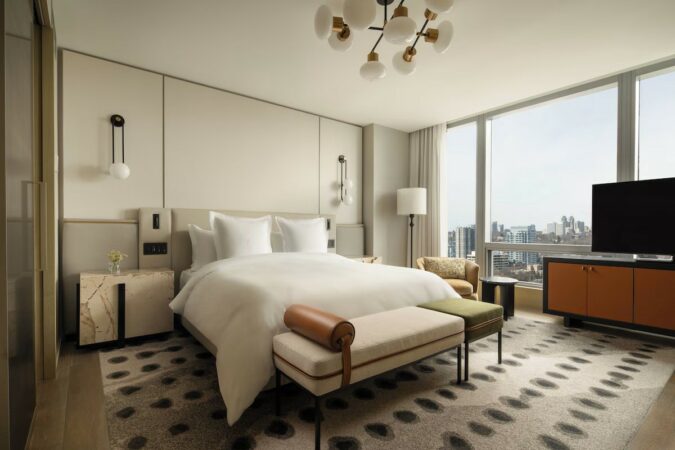In recent years, the hotel industry has experienced a significant transformation driven by technological advancements. From the way hotels operate to how guests experience their stays, innovative technologies are reshaping the hospitality landscape. This blog looks at some of the tech which is now becoming the norm in many hotels, some of which happens behind the scenes but much of which is customer facing to enhance guest experiences.
Smart rooms
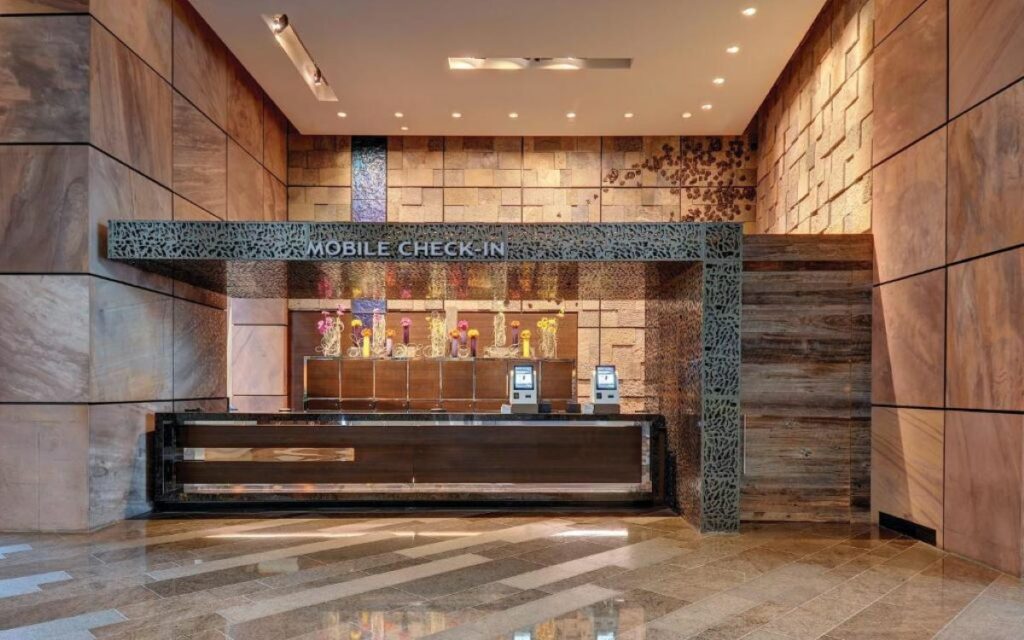
One of the most exciting developments in hotel technology is the advent of smart rooms. These tech-enhanced spaces offer a highly personalised experience, allowing guests to control various aspects of their environment with ease. Here’s how smart rooms are making stays more comfortable and memorable:
- Voice-Activated Controls: Hotels are integrating voice-activated systems like Amazon’s Alexa or Google Assistant, enabling guests to control lighting, climate, entertainment, and even order room service through simple voice commands.
- Mobile Room Keys: Digital room keys accessed via smartphones eliminate the need for physical keycards, enhancing security and convenience. Guests can check in and unlock their rooms using their mobile devices, often without stopping at the front desk.
- Automated Environment Settings: Smart rooms can remember a guest’s preferences, adjusting settings such as temperature, lighting, and even TV channels to their liking upon arrival.
Hotels like the Aria Resort & Casino in Las Vegas and Yotel have been pioneers in adopting smart room technology, setting new standards for guest comfort and personalisation.
Artificial Intelligence (AI) and Chatbots
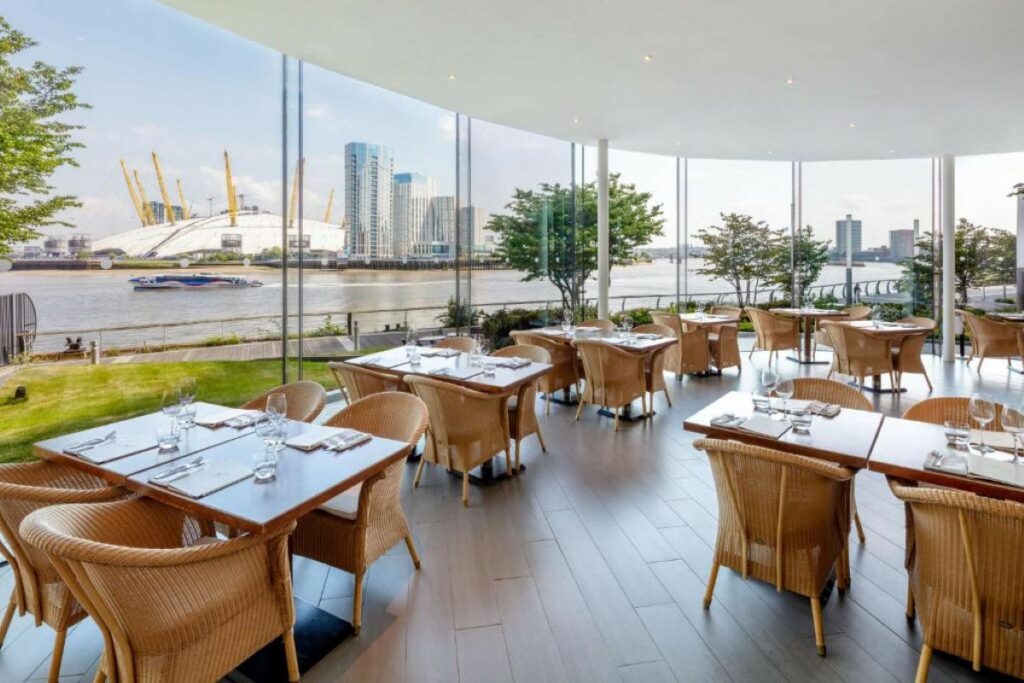
AI-powered solutions are becoming indispensable in the hotel industry, streamlining operations and enhancing guest interactions. Mostly used in advance of guest arrivals, AI can enhance the hotel guest experience via insights, but it can also enhance the guest’s stay.
- Chatbots: Available 24/7, chatbots like those implemented by Hilton and Marriott can handle a wide range of queries, from booking rooms to providing local recommendations. They offer instant responses, improving the efficiency of guest services and reducing wait times.
- Virtual Concierges: AI-powered virtual concierges like Edwardian Hotels’ “Edward” offer real-time assistance to guests, from making dinner reservations to arranging transportation.
Internet of Things (IoT)
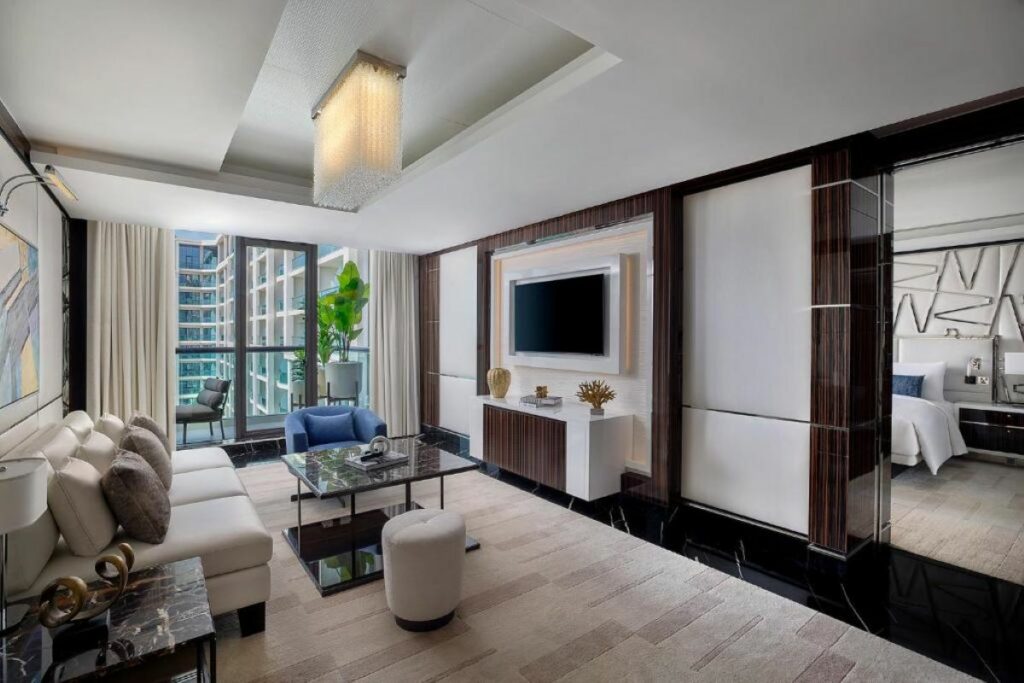
The Internet of Things (IoT) is creating a more connected and seamless experience for hotel guests:
- Room Automation: IoT devices allow guests to control room features such as lighting, curtains, and entertainment systems through integrated apps or voice commands. This connectivity enhances convenience and comfort.
- Energy Efficiency: IoT sensors help hotels monitor and optimise energy use by adjusting heating, cooling, and lighting based on room occupancy. This not only reduces operational costs but also supports sustainability initiatives.
- Maintenance and Operations: IoT-enabled devices can alert hotel staff to maintenance issues in real time, ensuring swift resolution and minimal disruption to guests.
Brands like Marriott and Accor have embraced IoT to offer smarter, more efficient stays, demonstrating the vast potential of this technology in enhancing operational efficiency and guest satisfaction.
Virtual Reality (VR) and Augmented Reality (AR)
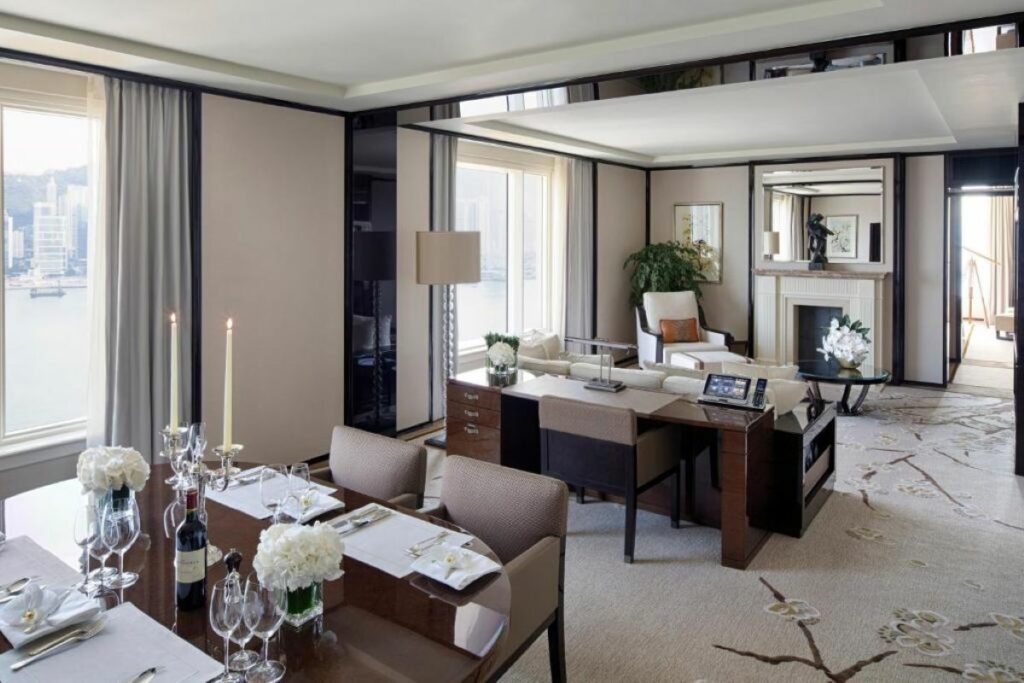
VR and AR are transforming how hotels market their properties and engage with guests:
- Virtual Tours: VR technology allows potential guests to take immersive virtual tours of hotel rooms, facilities, and even nearby attractions. This provides a realistic preview of what to expect, aiding in decision-making and increasing booking confidence.
- Enhanced Experiences: AR applications can enrich the guest experience by overlaying digital content onto the physical world. For instance, guests can use AR to explore local art installations or navigate through hotel premises with interactive guides.
- Training and Recruitment: Hotels are utilising VR for staff training, creating realistic simulations of customer service scenarios, and allowing new hires to familiarise themselves with their roles in a risk-free environment.
Hotels such as The Peninsula Hong Kong and Marriott have successfully integrated VR and AR into their marketing and operational strategies, offering a glimpse into the future of guest engagement.
Robotics and Automation
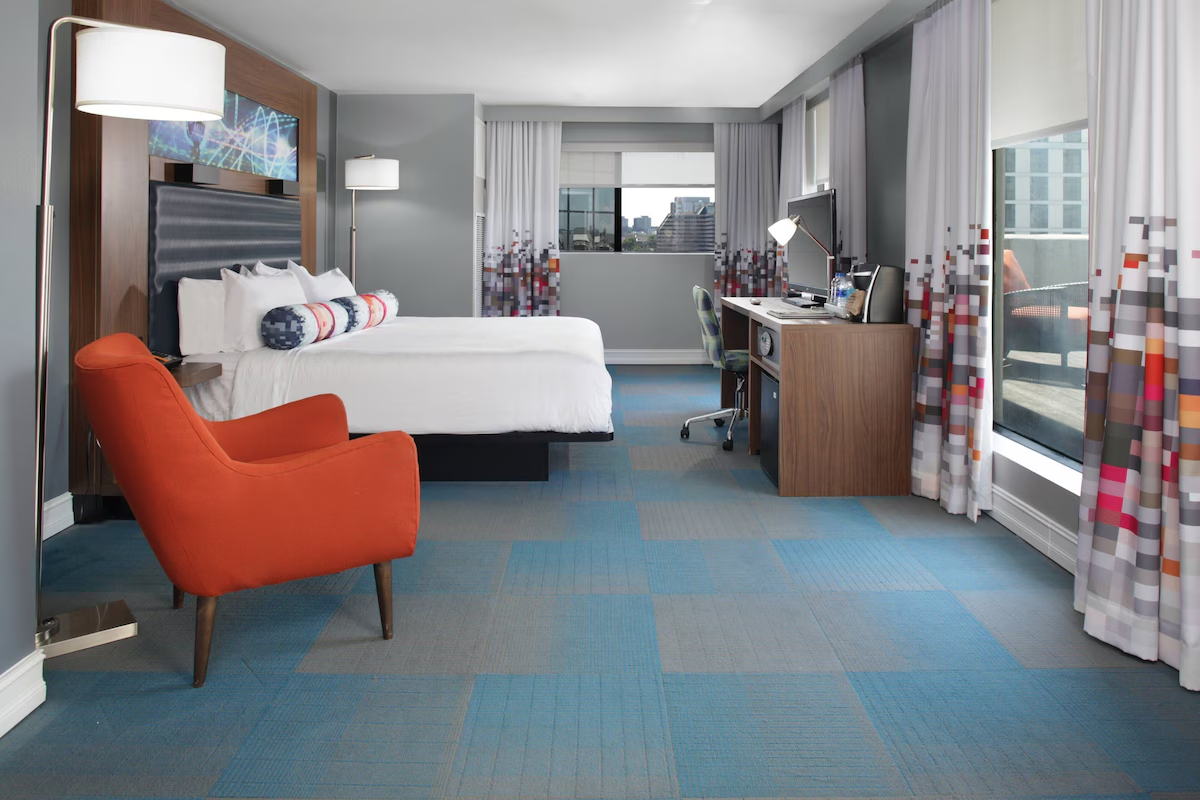
Robots and automation are revolutionising hotel operations, offering innovative solutions to enhance efficiency and guest experiences:
- Robotic Room Service: Hotels like the Henn-na Hotel in Japan and Aloft Hotels in California have introduced robots to deliver room service and amenities, ensuring timely and efficient service.
- Automated Check-In/Check-Out: Self-service kiosks and mobile apps enable guests to check in and out without waiting in line, streamlining the process and reducing staff workload.
- Cleaning and Maintenance: Robots equipped with advanced cleaning technologies can maintain hygiene standards efficiently, from vacuuming floors to sanitising surfaces, allowing human staff to focus on more personalised guest interactions.
These technologies are not just futuristic novelties but practical solutions that are redefining how hotels operate and interact with their guests both pre and post arrival and whilst guests are at the hotel.

